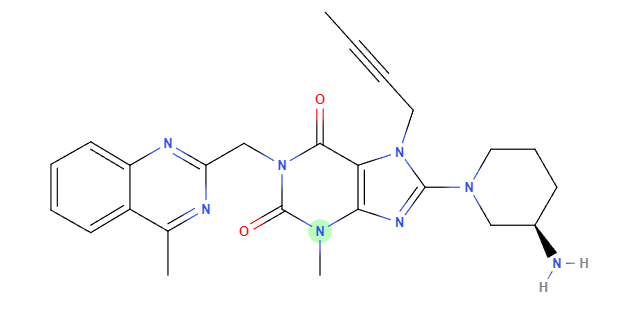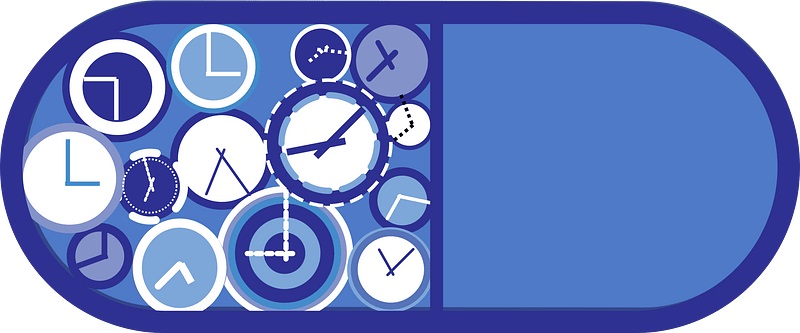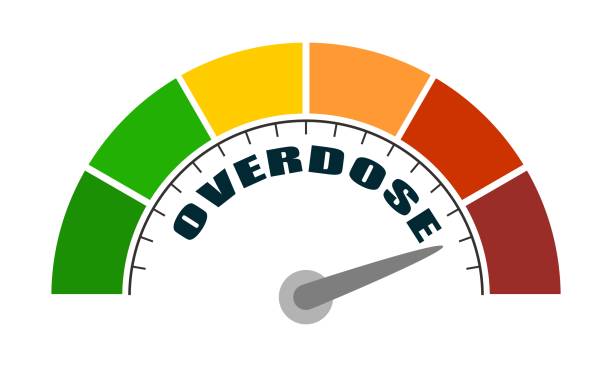Trajenta Duo
- What is Trajenta Duo
- Composition of Trajenta Duo
- How Trajenta Duo Works
- Uses of Trajenta Duo
- Off-Label Uses of Trajenta Duo
- Dosage and Administration
- Administration in Special Populations
- Side Effects of Trajenta Duo
- Trajenta Duo Drug Class
- Important Precautions
- Interactions with Other Medications
- Contraindications and Warnings
- Careful Administration
- Storage and Handling of Trajenta Duo
- Overdosage
- Conclusion
What is Trajenta Duo
Overview of Trajenta Duo
Trajenta Duo is a medication designed to treat type 2 diabetes. It combines two ingredients that target different pathways to help lower blood sugar levels. Doctors often recommend it when single treatments are insufficient to manage glucose levels.

Purpose of the Medication
The main goal of Trajenta Duo is to improve blood sugar management in adults diagnosed with type 2 diabetes. Combining two pharmacodynamic agents creates a synergistic impact that leads to better control of blood glucose levels. This combined approach lowers blood sugar and helps maintain stability throughout the day, reducing the dangers linked to unpredictable glucose fluctuations.
Composition of Trajenta Duo
Active Ingredients
- Linagliptin helps increase the levels of hormones, which play a crucial role in boosting insulin secretion after meals.
- On the other hand, metformin works as an antihyperglycemic agent by mainly reducing liver glucose production and enhancing insulin sensitivity in various body tissues.

Inactive Components
In addition to the ingredients, Trajenta Duo includes various additives that help maintain stability and improve the absorption of the active components. Examples of these additives are cellulose, magnesium stearate, and hypromellose. These substances ensure that the medication remains effective under various environmental conditions and storage situations.
How Trajenta Duo Works
Mechanism of Action
Trajenta Duo works in two different ways. Linagliptin stops the DPP 4 enzyme from breaking down hormones. This helps keep hormones like GLP 1 and GIP active for longer, which is essential for regulating insulin levels after meals. On the other hand, metformin improves the body's ability to regulate. It reduces the amount of glucose the liver produces, which is crucial in managing blood sugar levels when fasting.
Effect on Blood Glucose Levels
The impact of Trajenta Duo on glucose levels through pharmacology is significant:
- Decrease in Fasting Glucose: Metformin reduces glucose production by the liver, leading to fasting blood sugar levels.
- Managing Post Meal Blood Sugar: Linagliptin supports activity, which helps regulate the increase in glucose levels after eating and promotes a more consistent blood sugar balance throughout the day.
These combined effects help control blood sugar levels, which is beneficial for managing type 2 diabetes mellitus overall.
Uses of Trajenta Duo
Approved Indications
Trajenta Duo is approved explicitly for managing type 2 diabetes in adults. It is especially recommended for people who haven't reached the desired level of blood sugar control with metformin or for those for whom a mix of metformin and a dipeptidyl peptidase four inhibitor is suitable.
Detailed Discussion on Its Role in Treating Type 2 Diabetes
The medication's part system focuses on aspects of diabetes simultaneously. Linagliptin helps improve the system, which releases more insulin after meals. Metformin decreases glucose production in the liver and improves how insulin works in the body. This approach tackles blood sugar levels and other issues related to type 2 diabetes, playing a crucial role in managing diabetes effectively.
Off-Label Uses of Trajenta Duo
Exploration of Non-approved Uses
Trajenta Duo is typically prescribed to regulate blood sugar in individuals with type 2 diabetes. It is also occasionally used off-label for various metabolic issues. Healthcare providers may recommend it in situations where the medication's effects can help patients beyond its usual approved uses.
Review of Studies and Research Supporting Off-Label Uses
Recent studies are showing promising outcomes for Trajenta Duo in treating conditions related to metabolic syndrome, such as polycystic ovary syndrome (PCOS) and nonalcoholic fatty liver disease (NAFLD). Research from trials and cohort studies indicates that combining the insulin-sensitizing properties of metformin with incretin modulators could provide valuable therapeutic benefits for these conditions. However, further comprehensive studies are required to support the use of these medications in such cases.
Dosage and Administration
Recommended Dosage
The usual initial dosage of Trajenta Duo is one tablet taken twice daily. Each tablet typically comprises an amount of linagliptin mixed with different metformin levels. The dosage might be modified depending on the patient's treatment plan, how well it works, and how well it is tolerated.

Administration Techniques and Timing
Trajenta Duo should be taken with meals to minimize stomach issues linked to metformin and enhance the insulin response related to incretin. It is important to swallow the tablets without crushing or chewing them to preserve the effectiveness of the medication delivery system.
Adjustments for Specific Populations
Adjustments to the dosage of Trajenta Duo may need to be made for groups:
- For elderly patients, it is recommended to proceed with caution as they may have reduced kidney function.
- Patients with impairment should have their dosage adjusted according to the severity of their condition to prevent lactic acidosis, a rare but serious side effect of metformin.
- The safety and effectiveness of Trajenta Duo in pediatrics are yet to be determined.
These personalized treatment approaches aim to ensure all patient populations benefit while minimizing potential risks.
Administration in Special Populations
Elderly Patients
When giving Trajenta Duo to patients, it's crucial to be cautious because they might react more strongly to diabetes medications. It's essential to check their kidney function before starting treatment and keep an eye on it afterward since elderly patients are at risk of kidney issues that could impact how the drug is processed in their bodies.

Pregnant Women and Nursing Mothers
Limited information is available regarding the use of Trajenta Duo in women. It should be utilized only if the advantages outweigh the risks to the child. As it is uncertain whether Trajenta Duo passes into milk, caution is advised when giving it to breastfeeding mothers, weighing the benefits of breastfeeding against any potential harm to the baby.

Pediatric Use
The safety and effectiveness of Trajenta Duo in children have not been confirmed. Therefore, it is not advisable to use it on individuals under 18. Research studies are necessary to establish this group's dosage and potential adverse reactions.

Side Effects of Trajenta Duo
Common Side Effects
- Frequent complaints include stomach issues like feeling queasy and having diarrhea, possibly linked to the metformin in the medication.
- Additionally, many patients experience headaches and dizziness, impacting their functions for tasks that need mental focus.

Serious Adverse Reactions
In some cases, there are severe negative responses like lactic acidosis, a dangerous condition linked to metformin use, particularly in individuals with kidney issues. Pancreatitis and intense joint discomfort are adverse effects noted with linagliptin.
Long-term Side Effects
Extended usage of Trajenta Duo could decrease vitamin B12 levels, as metformin may affect the absorption of B12. It is recommended that B12 levels be checked in individuals receiving prolonged treatment.
Trajenta Duo Drug Class
Trajenta Duo Generic
Trajenta Duo is commonly known as linagliptin/metformin. It merges linagliptin, a type of peptidase 4 (DPP 4) inhibitor, with metformin, an oral medication, for managing blood sugar levels in diabetes.
Trajenta Duo Alternative
Other options similar to Trajenta Duo include oral drugs that mix a DPP 4 inhibitor with metformin, like Janumet (sitagliptin/metformin), or mixes containing various types of diabetes medications based on the particular requirements and health conditions of each patient.
Important Precautions
Conditions to Monitor
Patients taking Trajenta Duo should undergo monitoring of their kidney function as a precaution against lactic acidosis linked to metformin, especially for individuals with existing risk factors, like renal issues. It is also recommended that liver function tests be conducted since both elements of Trajenta Duo may influence levels of liver enzymes.
Interactions with Other Medications
When using Trajenta Duo at the same time as certain medications like insulin or sulfonylureas, there could be a higher chance of experiencing low blood sugar levels. Moreover, medicines that impact kidney function, such as NSAIDs and specific antihypertensive, might change how metformin works in the body. Possibly result in harmful buildup.

Dietary Considerations
- Patients need to follow a rounded diet to control their glucose levels effectively.
- It's important to steer away from consuming too much alcohol as it can heighten the chances of lactic acidosis when undergoing metformin treatment.
- Keeping an intake of carbohydrates throughout the day can help prevent sudden surges in blood sugar levels.
Interactions with Other Medications
Common Interactions
Trajenta Duo could interact with water pills, corticosteroids, and thyroid medications, potentially causing fluctuations in blood sugar levels. Moreover, any drugs that impact kidney function may influence the levels of metformin, requiring changes in dosage.
How to Manage or Prevent Interactions
It is crucial to educate patients about identifying symptoms of blood sugar. Keeping track of blood sugar levels regularly can reduce the chances of complications from drug interactions. Healthcare professionals should periodically review a patient's medication schedule to make adjustments or replace medications that may conflict with each other.
Contraindications and Warnings
Conditions that Prevent the Use of Trajenta Duo
Trajenta Duo should not be used in patients with:
- Kidney problems or those undergoing dialysis.
- Acute or chronic metabolic acidosis, which includes diabetic ketoacidosis.
- Any known allergies to the ingredients in Trajenta Duo could result in allergic reactions.

Warnings for Use Under Certain Health Conditions
Please use caution when using Trajenta Duo in patients with the following conditions:
- Heart failure: It could potentially worsen the situation, mainly when used with metformin.
- Liver issues: Both components may have an impact on liver enzymes.
- Pancreatitis history: There have been instances where linagliptin was linked to pancreatitis.
Careful Administration
Handling and Administration Precautions
Administering Trajenta Duo requires adherence to recommended doses to minimize the chances of adverse reactions. Regularly monitoring the patient's blood sugar levels is essential to guarantee the effectiveness of the medication and make any dosage adjustments. Remember to take the tablets without breaking or crushing them so they can be absorbed adequately.
What Caregivers Need to Know
Caregivers must stay alert and watch closely as patients follow their medication and dietary plans. It's crucial to recognize the symptoms of hypoglycemia and know how to handle them. Moreover, caregivers should make sure that patients don't miss their checkups to keep track of their well-being and how well the medication is working.
Storage and Handling of Trajenta Duo
Storage Conditions
Store Trajenta Duo in a dry place at room temperature. To shield it from outside elements and avoid contamination, keep the medication in its packaging until you're ready to use it.

Shelf Life and Disposal
The usual shelf life of Trajenta Duo is two years from the manufacturing date. Proper disposal of any unused medication is important to avoid accidental ingestion or harm to the environment. Patients are advised to seek guidance from their pharmacist or local waste disposal service on how to dispose of it.
Overdosage
Symptoms of Overdose
Signs of taking too much Trajenta Duo may lead to low blood sugar, such as trembling, sweating, disorientation, or, in extreme situations, passing out. Another critical danger linked to metformin intake is lactic acidosis, identified by feelings of nausea, throwing up, and stomach ache.

Steps to Take in Case of Overdose
In case of an overdose, it's crucial to seek medical help. Patients must be told to contact emergency services or head to the emergency room. The treatment may include providing care, monitoring vital signs, and taking steps to lower drug absorption and speed up elimination based on the patient's condition.
Conclusion
Summary of Key Points
Trajenta Duo is a remedy for managing type 2 diabetes. It blends two key components to enhance blood sugar regulation. To optimize its advantages while reducing potential risks, it is essential to administer it, be mindful of possible interactions, and follow storage instructions diligently.
Final Recommendations and Considerations
Patients taking Trajenta Duo are advised to have checkups with their healthcare provider to monitor their health status and the effectiveness of their treatment. It is essential to stay informed about managing diabetes and follow the treatment guidelines consistently to achieve the best possible health results.






















